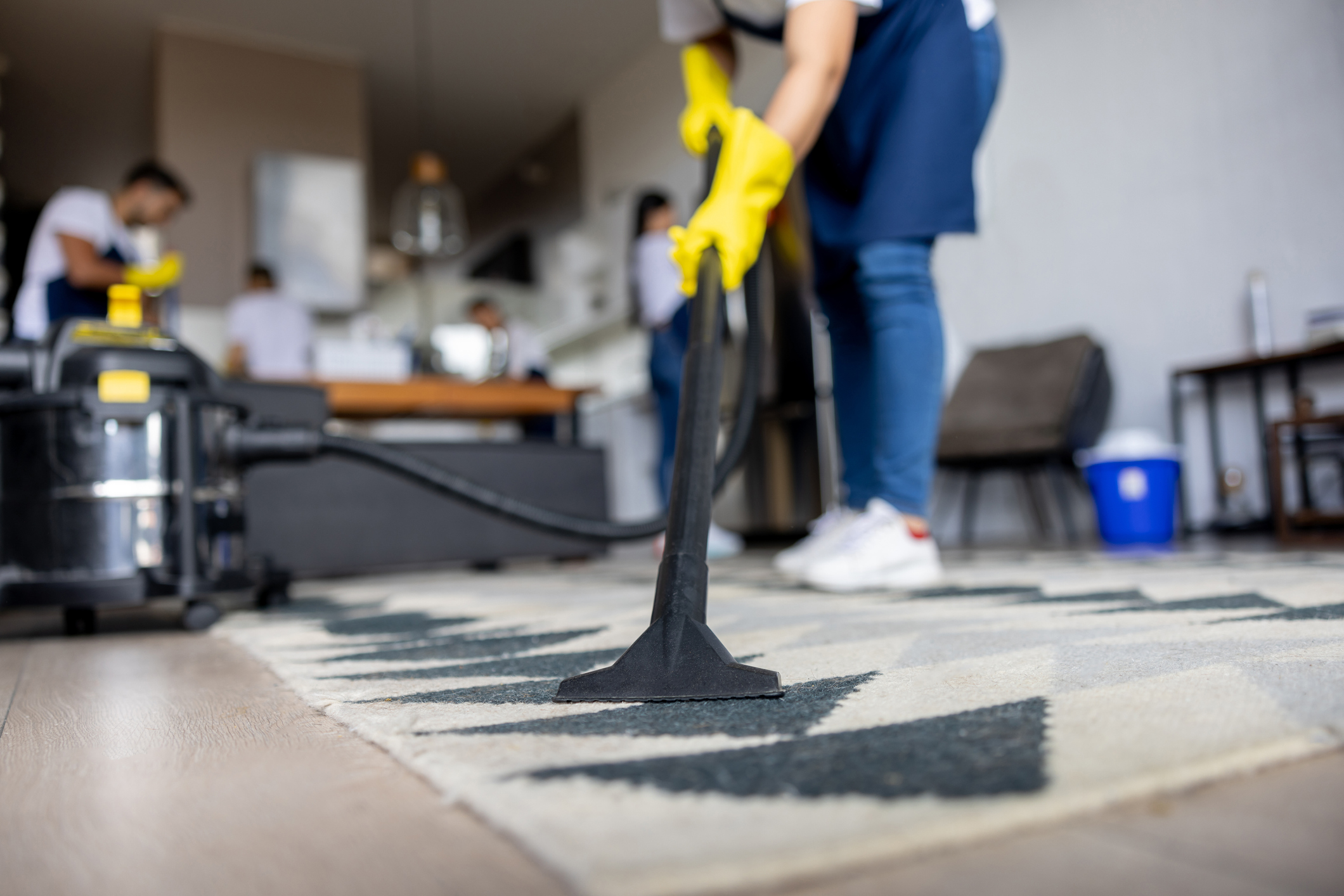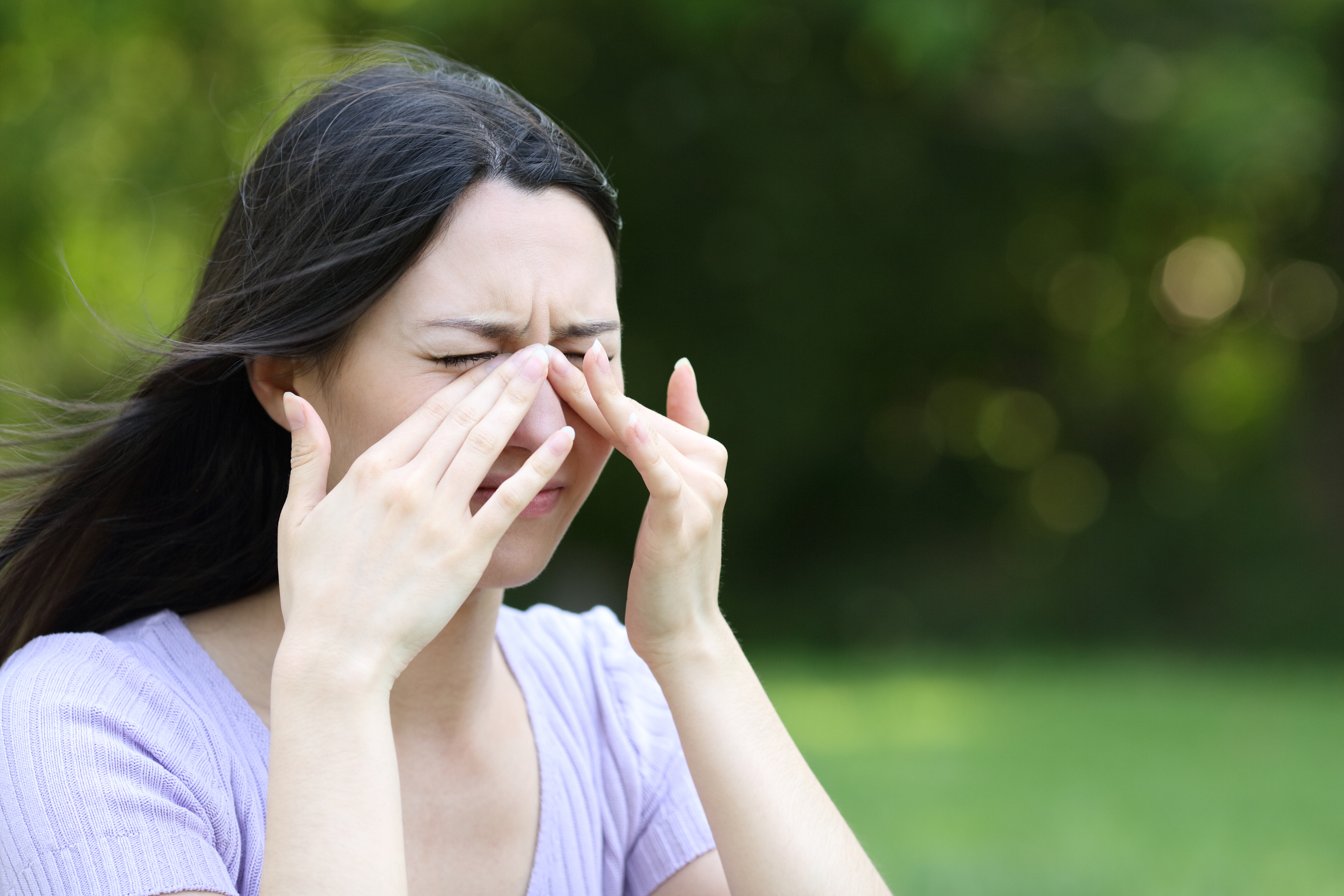Spring is a time for beautiful weather and scenic nature, but if you’re one of the millions of people who get seasonal allergies, it also means sneezing, congestion, a runny nose, and other undesirable symptoms. According to the CDC, 1 in 4 Americans has a seasonal allergy. An allergy is your immune system reacting to a substance or protein. Substances can include pollen, dander, and even specific foods such as peanuts.
Seasonal allergic rhinitis, also known as seasonal allergies, can make you miserable. Seasonal allergies can vary for each person as to when and which season affects them the most.
This typically comes down to when the specific irritant or pollen that affects your immune system is heavily in the air. However, spring is the most common seasonal allergy time. Allergy symptoms typically last for one or two months. Although this doesn’t seem like too long of time to deal with them, allergies can hinder everyday life.
Before you give up and decide to power through until fall, try these nine tips to feel your best this allergy season.
1. Learn the different types of allergies.
Allergies come in several different forms. The different categories are respiratory, food, skin, and drug allergies. Each type of allergy has specific and unique allergic symptoms, so it’s important to recognize which symptoms are which form of allergy.
Seasonal allergies are a form of hay fever, which is an immune disorder caused by an allergic response to pollen primarily. The other type of hay fever is perennial allergies, which occur year-round.
2. Identify your allergens.
The first step in managing your allergies is identifying the substances that trigger your symptoms. Common allergens include pollen from trees, grasses, and weeds, dust mites, mold spores, and pet dander. Once you know what you are allergic to, you can take steps to avoid or reduce your exposure to those allergens.
You can work with an allergist to identify your allergens through skin tests or blood tests. The skin prick test, also known as a scratch test, easily identifies what causes allergy symptoms by using a needle to prick the skin. The thin needle has a small number of different allergens. The allergist will then see how your skin reacts to the allergen.
On the other hand, the blood test evaluates an antibody known as immunoglobulin (IgE) in your blood. It will either determine the total amount of IgE in your blood or the response of IgE to specific allergens. If you have allergies, your IgE count will be higher than normal.
Your allergist can help you develop a personalized treatment plan based on your specific allergy triggers and symptoms. Allergies are a long-term condition, so it’s important to speak to an allergist if you notice recurring symptoms.
3. Monitor pollen counts.
During allergy season, pollen counts can vary from day to day. Monitoring pollen amounts can help you plan your activities and take steps to reduce your exposure to allergens. You can check local pollen measurements through weather apps, news websites, or the National Allergy Bureau website.
On days when pollen counts are high, try to stay indoors as much as possible. If you go outside, shower, and change your clothes when you come back inside to remove any allergens that may have attached to your skin or clothes. This can help reduce your exposure to allergens and prevent them from spreading throughout your home.
4. Keep your home clean.
Consistent housecleaning can get rid of allergy triggers in your home. Dust mites and mold spores are common indoor allergens that can trigger allergy symptoms year-round. To reduce your exposure to these allergens, keep your home clean and dry. It’s important to avoid common mistakes such as shampooing carpets and using heavily scented cleaners since the scents in cleaners can trigger allergy symptoms.
Vacuum your carpets and upholstered furniture regularly using a vacuum cleaner with a HEPA filter. Wash your bedding, curtains, and other fabrics in hot water to kill dust mites and remove allergens. Use a dehumidifier to reduce moisture levels in your home and prevent mold growth. Additionally, be sure to scrub your bathroom to keep it free of mold.
5. Use air purifiers.
Air purifiers can help remove allergens from the air and improve the air quality in your home. Look for air purifiers with HEPA filters, which can capture small particles like pollen, dust mites, and pet dander. You can also use air purifiers in your car to reduce your exposure to allergens during your commute.
6. Avoid outdoor activities during peak pollen times.

The morning and windy days typically have the most pollen in the air. Try to schedule your outdoor activities for later in the day when pollen counts are lower. You can also check the pollen forecast before planning outdoor activities.
If you enjoy outdoor exercise, consider exercising indoors during allergy season. You can do yoga or other low-impact exercises at home or join a gym or fitness class that is indoors.
7. Manage your stress.
Stress can weaken your immune system and make you more vulnerable to allergies. During allergy season, it is important to manage your stress levels to reduce your risk of developing allergy symptoms.
You can try relaxation techniques like deep breathing, meditation, or yoga to reduce stress levels. You can also take breaks throughout the day to stretch and move your body, which can help reduce tension and improve your mood.
8. Stay hydrated.
Drinking plenty of water can help flush allergens out of your system and reduce your allergy symptoms. Aim to drink at least eight glasses of water per day, and more if you are exercising or spending time outdoors. You can also drink herbal teas like chamomile or nettle, which can have anti-inflammatory properties that may help reduce allergy symptoms.
9. Consider Allergy Medications.
Over-the-counter allergy medications can help relieve allergy symptoms like sneezing, congestion, and itchy eyes. Antihistamines, decongestants, and nasal sprays can all be effective at reducing allergy symptoms. Talk to your doctor or pharmacist about which medications may be right for you.
In the height of allergy season, allergy medication may be expensive and unavailable. Because of this, it is advised to think about buying generic brand medications, which are just as effective as name brands. Before taking the medication, be sure you are not allergic to any of its ingredients.
Tackling your seasonal allergies doesn’t have to be so tough. By following these nine strategies, you’ll be more in tune with your body and take care of it when allergen triggers are present this allergy season. Be sure to keep up with our Spring-Cleaning Series to see what other areas of wellness you can take care of this spring.
Be sure to follow us on LinkedIn, Twitter, and Facebook as well as our blog for the latest Higginbotham Public Sector updates.
[1]: cdc.gov
